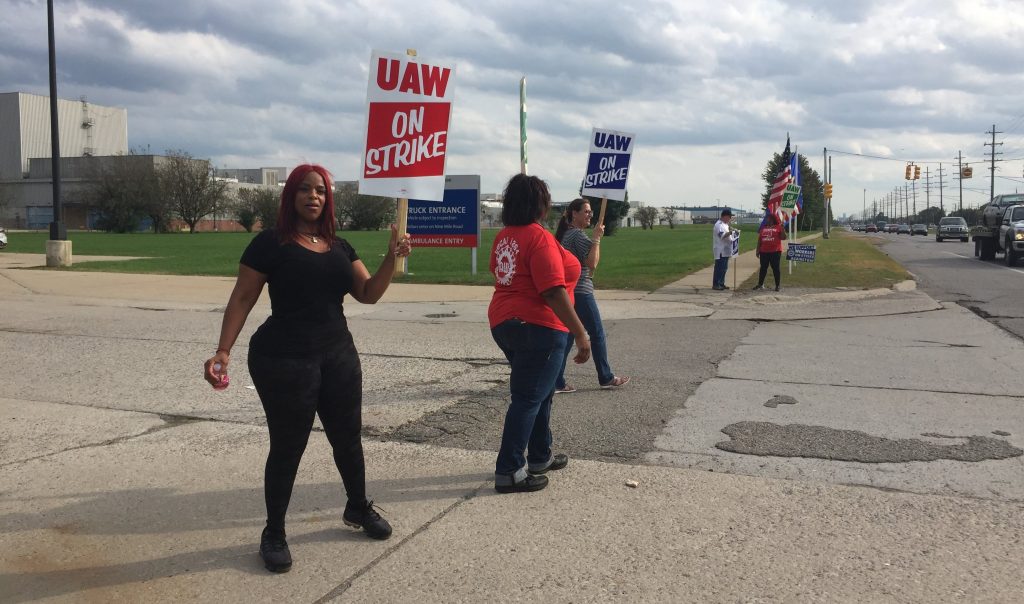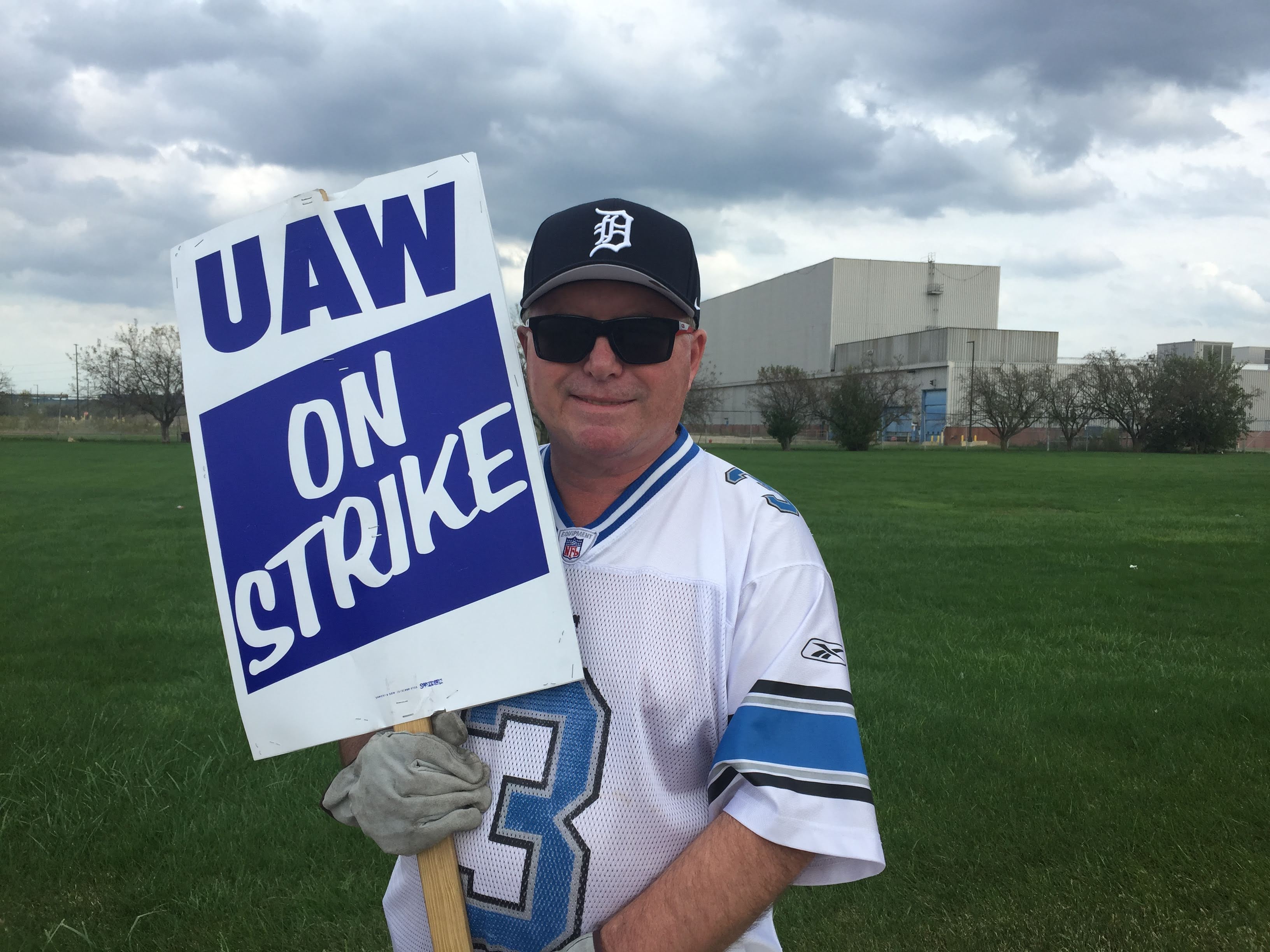This General Motors Worker Had Worked for 35 Years When His Plant Was Shut Down. Now, He’s Striking.
WDET’s Laura Herberg visiting the UAW General Motors strike and spoke to a millwright about why he’s on the picket line.


Editor’s note: WDET reporters are members of the Professional and Administrative Union, Local 1979, UAW.
The United Auto Workers strike against General Motors is now in the middle of its third week. That means it’s the longest strike against General Motors since 1970.
WDET’s Laura Herberg stopped in at GM’s Warren Transmission Operations facility, where she met James Poore, a millwright who used to work at the Warren facility before GM shut it down two months ago.
“I had 35 years seniority and they shut her down August 2nd,” says Poore. “We’ve all been given our papers to work elsewhere in the month of October. I’ll be going to Flint. Some people are going way out of state like Kansas City, Kan. and Bowling Green, Ky.”
Poore says he hopes to retire in six months. But for now, he’s on strike.
Click on the player above to hear the interview with striking GM millwright, James Poore. Read the transcript, edited for clarity, below.
WDET: Are you going to move to Flint or are you going to commute there?
James Poore, former GM millwright: I’m going to commute at first. It’s 90 miles each way for me. I’m going to see what I can do.
How do you feel about that?
I’m not happy about it, of course. But you’ve got to do what you’ve got to do to support your family.
Here you are holding a picket sign today. Tell me why you’re doing that?
It’s time for them to step up. You know the CEO of General Motors makes 400 times what I do. The people that really have gained are the people in the executive board suites. They are the ones that made the gains, not anybody else.

Do you mind sharing what you were making? Some people say that auto workers make a good wage and they wonder what you’re complaining about.
There’s those temps that have been on the job for years now and they’re never hired in as permanent workers. These people never can get to the first tier, never, unless we do something about it now.
So, at the plant, there are two kinds of workers, is that correct?
You have a permanent worker and you have a temporary worker. You work side-by-side and one makes quite a bit more money than the other. But they do the same job, year after year. So, resentment builds.
Why are there temporary workers?
Well, during the bankruptcy the UAW let the automakers have temporary workers to get over that rough period. But now ten years later, we’re not over the rough periods yet, according to them. Well, we are! They’re making record profits! They have – I forgot – how many billions they have in the bank. It’s time to come up to the table and take care of some of these people that made quality products for them for the last ten years.
How do you feel about all the corruption scandals that have surfaced with the UAW?
You know, they’ve been talking about union corruption since Jimmy Hoffa and I don’t think Jimmy Hoffa affected me or my parents too much.
Are you worried at all about how that might impact negotiations?
No, I’m not. I don’t think that will impact negotiations at all. That’s something that will be handled by law enforcement and in the courts. It has nothing to do with negotiations.

Tell me about your strike pay. What are you making right now?
They make $250 per week. But we stand out here six hours a day, every other day for $250 per week.
Are you making that personally?
No. I’m laid off and I’m getting unemployment. October 14th I’m supposed to be in Flint, depending on whether this strike is over or not.
Assuming all goes well, what are you supposed to be doing in Flint?
I’ll be working as a millwright, just like I worked here as a millwright.
What does a millwright actually do?
Plants are full of conveyor systems. We work on the conveyor systems. That’s our basic trade. Sometimes we build them, sometimes we replace parts. The goal is to keep them running.
Do you like your job?
Yes, definitely.
What do you like about it?
It has good pay, considering the rest of the population. But also I’ve been doing it for so long it’s just a home. You know, you’re comfortable doing it, it becomes a home.
